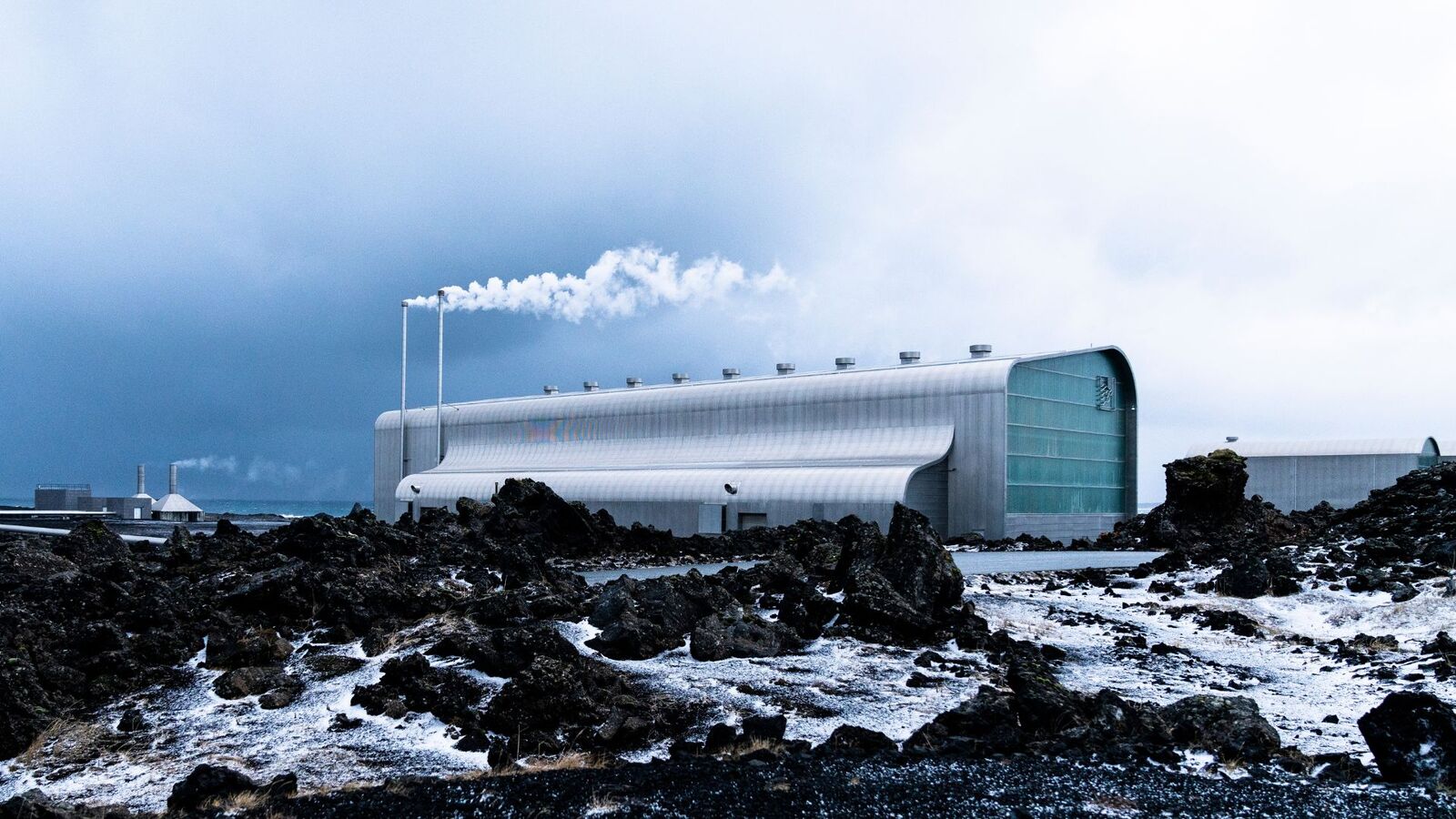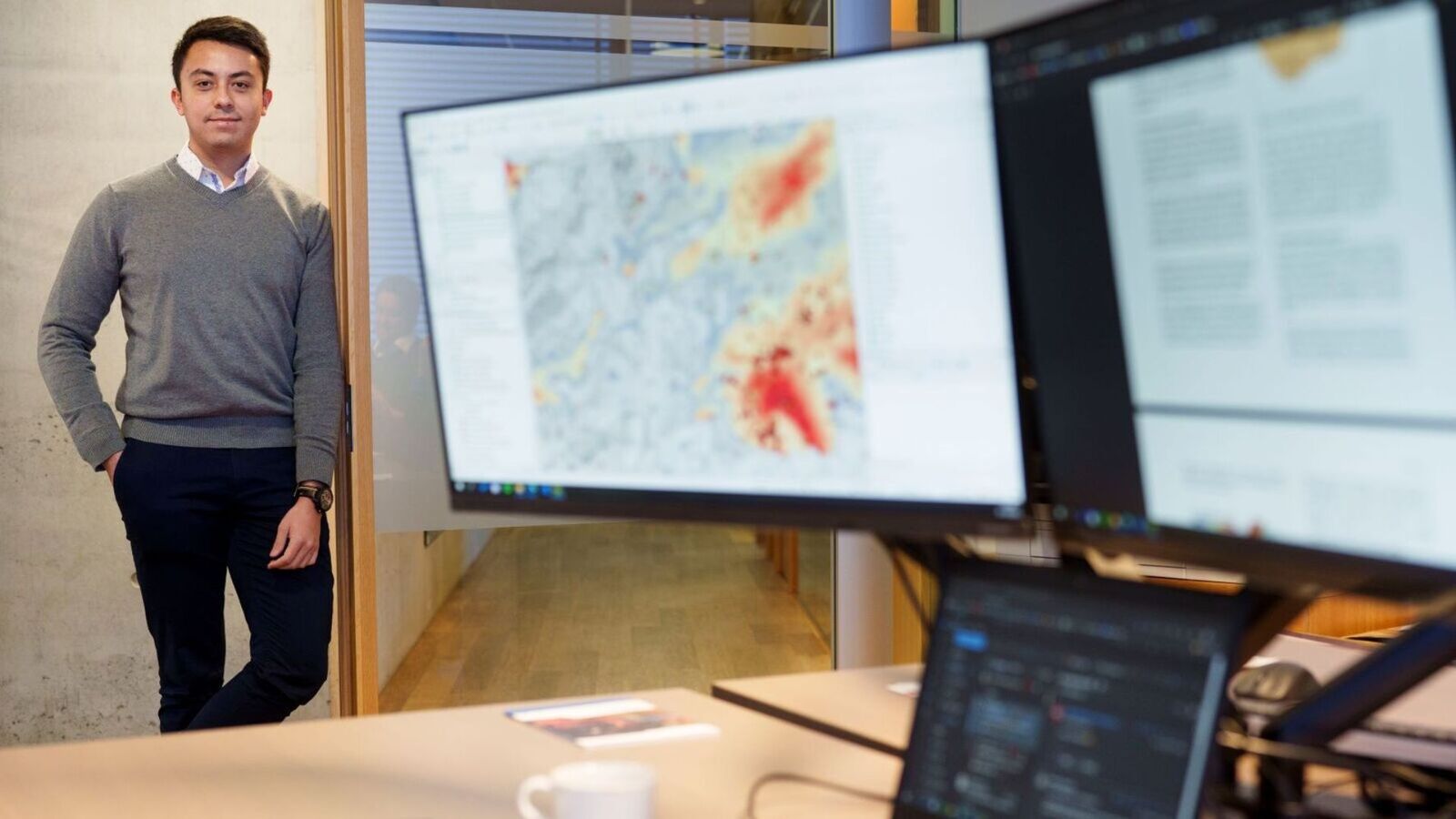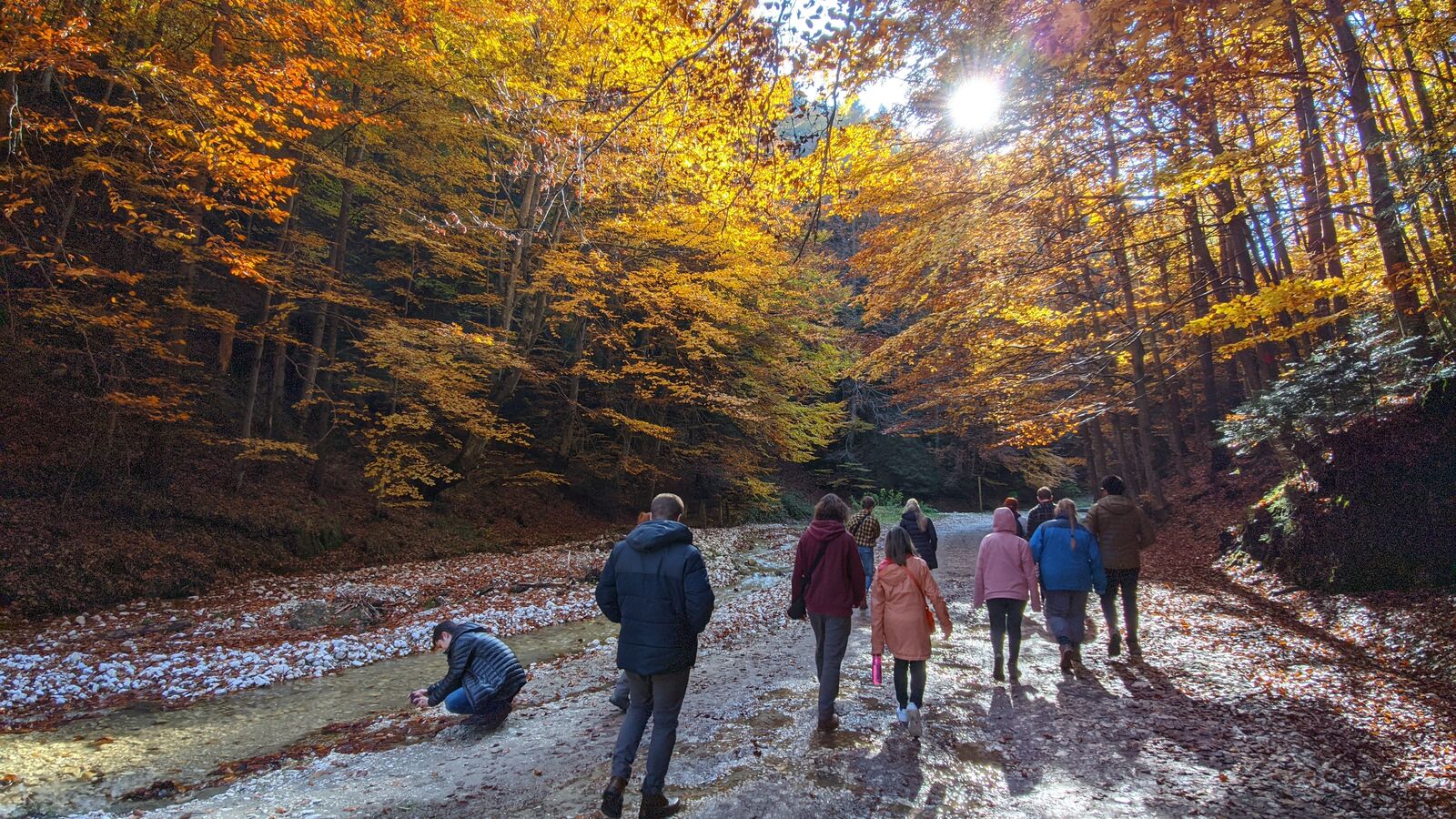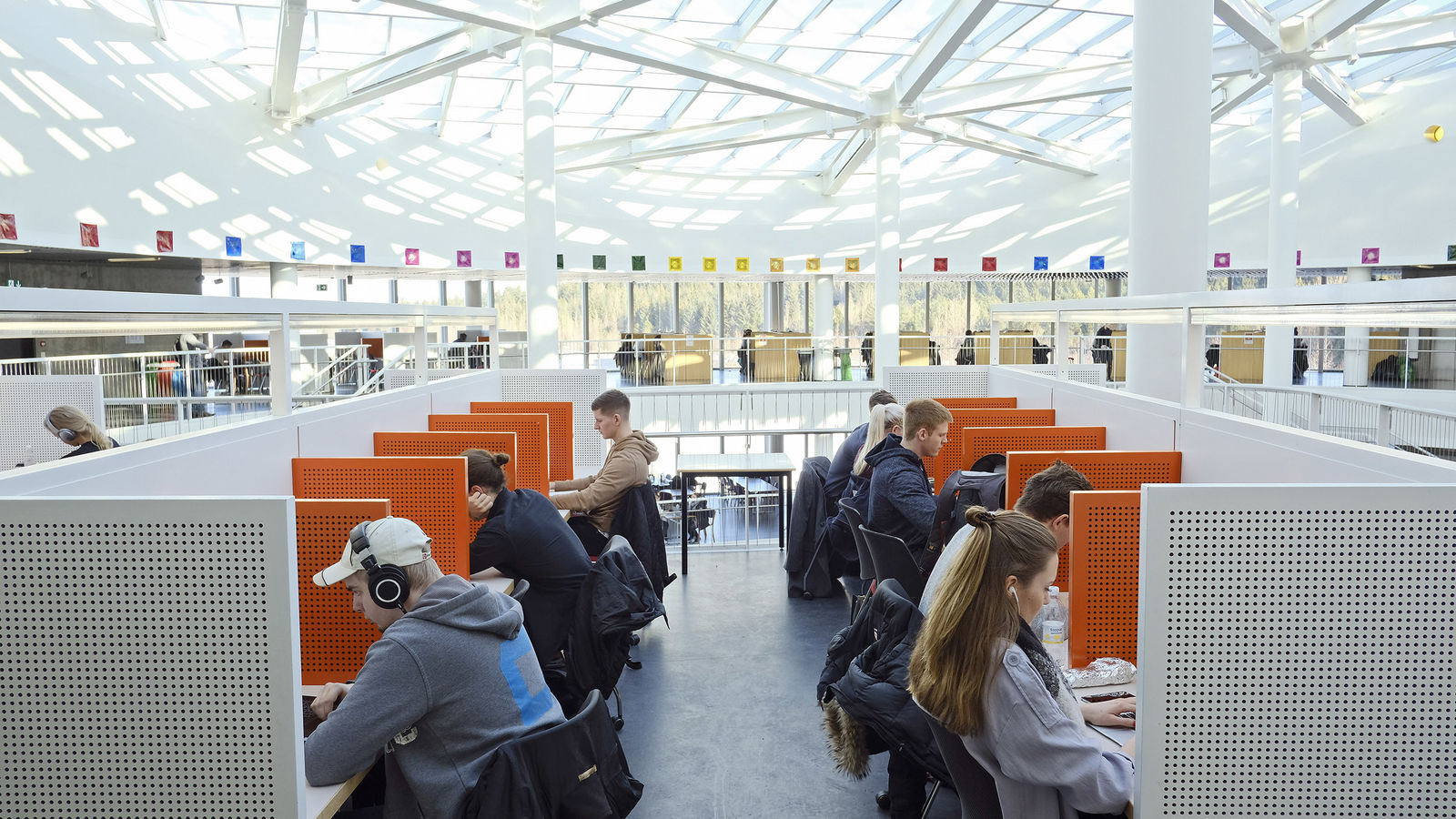MSc Sustainable Energy
This program aims to deliver a well-developed understanding of the interdisciplinary nature of sustainable energy, blending the realms of technology, business, and law. It dives deep into the conceptual foundations and offers hands-on tools of analysis, including cutting-edge quantitative methods.
Overview

- Language: English
- Duration: 24 months of continuous study
- Format: Full-time, on-campus
- Start: Energy Field School - July 22, 2024 / Semester - August 19, 2024
Sustainable energy is at the heart of the global transition towards a more resilient and eco-friendly future. It plays a pivotal role in reshaping how we think about energy, from harnessing the power of geothermal springs beneath the Icelandic crust to the winds that sweep across the world. Sustainable energy not only promises a cleaner environment but also offers innovative solutions to modern energy challenges, ensuring energy security and economic growth.
Pathways to Specialization:
Our program introduces three distinct pathways to guide students through their academic journey:
- Economics Policy: Delve into the intricate balance between technological advancements, economic feasibility, legal frameworks, and the strategic management of energy systems.
- Geothermal: Explore the details of geothermal energy, from geology and drilling to power plant design. Allowing society to tap into the only baseload renewable energy source beneath our feet.
- Energy Science: Understand the broader spectrum of sustainable energy solutions, from solar to wind, and the science that powers them.
While these pathways provide a structured approach, they are by no means restrictive. We encourage our students to traverse between them, ensuring a holistic understanding and fostering interdisciplinary exploration.
Collaboration – Inside Access
In collaboration with our partners, including global leaders in renewable energy like Reykjavik Energy and Iceland Geosurvey, students are offered unparalleled insights into the entire sustainable energy spectrum. From witnessing the power of geothermal power plants to understanding the intricacies of sustainable energy laws, the journey is comprehensive and enlightening.
Student Body and Faculty
The Sustainable Energy Science program attracts a diverse cohort of students with backgrounds spanning from business and engineering to social sciences and natural sciences. While students from disciplines such as Business, Engineering, Economics, Geology, and Geography often find the curriculum incredibly enriching, our doors are open to passionate learners from all academic realms.
These rich backgrounds foster a unique interdisciplinary environment, enriched further by our faculty — a blend of seasoned academics and industry professionals. Together, they ensure a holistic and practical understanding of sustainable energy challenges.
Addressing Global Energy Challenges
The program will equip students to apply sustainable energy concepts and quantitative methods to real-world challenges. Students will gain insights into the significance of a holistic approach, understanding the interplay between technology, economics, and policy-making. Moreover, with the looming challenge of climate change, the principles and tools of sustainable energy are indispensable in crafting global solutions.
Join us in this journey as we explore the vast discipline of sustainable energy, delve into its complexities, and emerge with knowledge and skills that not only promise a sustainable future but also pave the way for innovative solutions in the energy field.
Program Structure

Duration and Format
- Duration: 24 months of continuous study.
- Format: Full-time, on-campus.
- Credits: 120 ECTS
Pathways to Specialization:
Our program introduces three distinct pathways to guide students through their academic journey:
- Economics Policy: Delve into the intricate balance between technological advancements, economic feasibility, legal frameworks, and the strategic management of energy systems.
- Geothermal: Explore the details of geothermal energy, from geology and drilling to power plant design. Allowing society to tap into the only baseload renewable energy source beneath our feet.
- Energy Science: Understand the broader spectrum of sustainable energy solutions, from solar to wind, and the science that powers them.
While pathways offer a guide, students are encouraged to intermix courses from different pathways for a well-rounded experience.
Core Courses:
- Energy Economics (6 ECTS): This foundational course, integral to our energy policy and economics pathway, delves into the nuances of energy demand and supply, pricing mechanisms, environmental implications, and the ever-changing world of public policies. Through hands-on exercises, in-depth analyses, and expert-led discussions, gain insights into global oil and gas markets, power sector monopolies, and sustainable energy solutions. Energy Economics is designed to empower students with the knowledge to navigate the complexities of the energy sector.
- Energy Technology (6 ECTS): This course provides a comprehensive understanding of how energy flows through various systems, from natural phenomena like glaciers to man-made structures such as electric motors. You'll explore the techniques and technologies humans have developed to harness this energy and the implications these have on our economy and environment. This course provides a solid grasp of the fundamental principles of energy and its associated technologies which are crucial for those looking to engage in energy policy discussions, evaluate energy projects, or understand the broader impact of human activities on energy systems.
Teaching and Learning
Our curriculum is a blend of traditional lectures, seminars, and field visits, ensuring a comprehensive understanding of the subject matter here at Reykjavik University. What truly sets us apart is our faculty, comprising both accomplished academics and industry experts, bringing a wealth of knowledge and real-world insights to the classroom.
Personal Study Plan
Addressing energy challenges requires a collective effort, drawing insights and expertise from every corner of academia and industry. At the Iceland School of Energy, we believe in the power of diverse backgrounds coming together to forge innovative solutions. We collaborate across the university and various disciplines, tailoring study plans to ensure every student remains engaged, inspired, and constantly challenged. Courses labeled with (*) are required courses.
Sample Schedule - Policy and Economics
| Summer | Fall | Spring | |
|---|---|---|---|
Year 1 | 6 ECTS
| 31.5 ECTS 12 Weeks
| 32.5 ECTS 12 Weeks
3 Weeks
|
Year 2 | 30 ECTS
| 30 ECTS
|
Sample Schedule - Geothermal
Summer | Fall | Spring | |
|---|---|---|---|
Year 1 | 6 ECTS
| 24 ECTS 12 Weeks
| 37 ECTS 12 Weeks
|
Year 2 | 30 ECTS
| 30 ECTS
|
Sample Schedule - Energy Science
| Summer | Fall | Spring | |
|---|---|---|---|
Year 1 | 6 ECTS
| 27 ECTS 12 Weeks
| 28 ECTS 12 Weeks
|
Year 2 | 30 ECTS
| 30 ECTS
|
Core Courses and Electives
Energy Field School
This three-week course provides a comprehensive introduction to sustainable technology. Through a combination of lectures and site visits, students gain insights into the factors driving the demand for sustainable energy and the practicalities of implementing these technologies. With guidance from our experienced faculty, you'll have the opportunity to see sustainable energy systems in action and understand their real-world applications.
Energy Economics
Over 12 weeks, students delve into the specifics of energy economics. The course covers a range of theoretical and empirical topics, equipping students with the skills to analyze energy systems, evaluate energy projects, and develop solutions to practical problems.
Energy and Climate Policy Innovation
This course offers insights into energy and climate policy development and its real-world implementation. It covers the policy-making process, its implications for climate change, and the pressing energy needs of our times. Students will also practice policy advocacy, negotiation, briefing delivery, and op-ed writing.
Environmental Impact Assessment
In this three-week course, students learn about the Environmental Impact Assessment (EIA) process. They'll understand how to gauge the environmental effects of proposed developments and have the chance to craft their own EIA on a chosen topic.
Energy Markets and Regulations
This course, in collaboration with Cornell University, provides an overview of energy markets and regulations. It focuses on the industries in North America, especially the United States and Canada, with an emphasis on electricity pricing and market oversight. The course also touches upon the role of liquid and gas fuel markets.
Energy Technology
This 12-week course offers a foundational understanding of energy technology and engineering. Tailored for those new to the field, it covers essential concepts like thermodynamics, fluid mechanics, and heat transfer, ensuring students can competently describe various energy systems.
Energy Geology
This course offers insights into the geoscience principles that underpin the energy sector. Topics covered include geology basics, the relationship between rocks and energy, structural geology fundamentals, and geomechanics. Practical sessions focus on interpreting geological maps, creating geological cross-sections, and understanding the dynamics within geological energy systems.
Geothermal Conceptual Modeling
This course introduces students to geological modeling and geothermal conceptual designs. It emphasizes hands-on learning, where students will work with the Leapfrog Geothermal software and delve into the conceptual modeling processes. The course concludes with students developing natural state models using both simulated and real field data.
International Energy Law
Gain a clear understanding of the legal and institutional frameworks in the field of international and European energy law. This course covers the primary legal principles, policy matters, and legal issues related to energy and sustainable development. It also offers insights into the Icelandic energy market and the relationship between national and international energy laws.
Power Plant Design
Get a comprehensive understanding of power project design, construction, and operations. This course covers geothermal plant cycles, equipment, and operations. Students will learn to structure feasibility studies, design piping and pumping stations, understand major design point selection processes, and develop major conceptual drawings.
Research Methods
This course emphasizes the importance of robust research skills. Students will be guided through literature surveys, scientific writing techniques, and research project management, ensuring they're well-prepared for academic endeavors in subsequent courses.
>> More information on all available courses can be obtained from the course overview page.
Study Abroad & Exchange

Students from the Iceland School of Energy during their exchange program at the University of Bucharest, exploring the Romanian mountains, the source of water channels for hydropower generation.
At the Iceland School of Energy, we believe in the power of global perspectives. That's why we've established partnerships with renowned universities across Europe and beyond, enabling our students to embark on programs ranging from a few days to a semester or two.
Typically, students opt for these exchange opportunities in their second year or later. This timing allows them to align their overseas studies with their thesis research, delving deeper into specialized topics and benefiting from the expertise available at our partner institutions.
For many of our students, who hail from various corners of the world, these program offers an enriching chance to diversify their academic journey. Our partner institutions are spread across countries including Austria, France, Germany, Italy, Slovenia, the Netherlands, Romania, Colombia, Mexico, and Indonesia, offering a myriad of learning environments and cultural experiences.
Benefits of our exchange programs include:
- Gaining a broader understanding of the global energy landscape.
- Immersing in diverse teaching methodologies and cultural nuances.
- Collaborative opportunities, such as co-authoring thesis topics with faculty from partner universities.
- Specializing further in specific areas of interest, enhancing employability and industry readiness.
In essence, our exchange programs are more than just academic adventures; they're pathways to global understanding, fostering well-rounded professionals ready to make impactful contributions in the energy sector.
Admission
Admission Requirements
The Sustainable Energy program welcomes applicants from diverse academic backgrounds, fostering a multidisciplinary environment. A strong grounding in college-level mathematics is a vital for success in this program, and a background in a statistics is also beneficial.
Beneficial Undergraduate Degrees
Having an undergraduate degree in one of the following disciplines will be beneficial, but even if your degree is not listed you still could be a successful candidate.
- Natural Sciences - Physics, Chemistry, Environmental Science, Geology, Geography, Biology
- Social Sciences & Humanities - Economics, Public Policy, Sociology, Anthropology
- Business & Management - Business, Management, Finance
- Mathematics & Statistics - Applied mathematics, Statistics
- Technology & Informatics - Information Technology, Data Science
- Law - Environmental, Energy, International
For further details regarding admission requirements and the application process, please visit our Admissions page for the Iceland School of Energy at: Admissions Page
Recommend GPA
The recommended grade point average (GPA) for admission is 8 out of 10 on the Icelandic selected grade point scale, which is equivalent to a GPA of 3.25 out of 4 on the U.S. scale.
Contact Us
Have a question about the degree?
You can reach out to us any day by simply sending us an email at ise@ru.is.
| Photo | Name | Title | Contact | Description |
|---|---|---|---|---|
 | Jacob Kaminski | Program Administrator | ise@ru.is | Prospective students may reach out for questions regarding any of our graduate programs. |
Freyja Ingadóttir | International Admissions Officer | admissions@ru.is | Contact for general questions regarding the application process, visa-related issues and inquires. |

